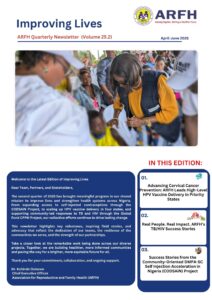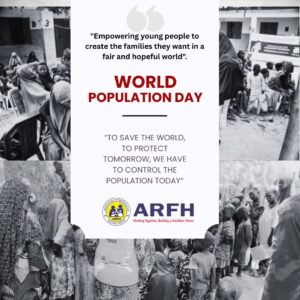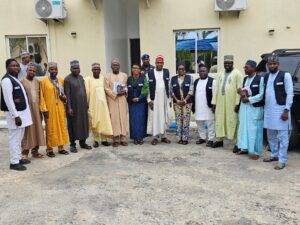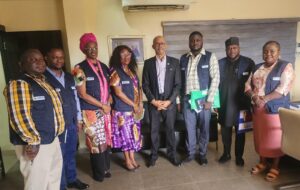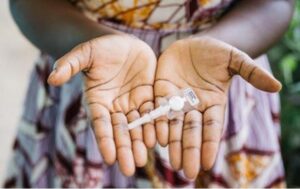 Following evidenced-based achievements recorded in the implementation of Resilient and Accelerated Scale-up of DMPA-SC/Self-Injection in Nigeria (RASUDIN) project, the Association for Reproductive and Family Health received a follow-on grant award from the Bill and Melinda Gates Foundation (BMGF) to implement Community Oriented DMPA-SC/Self Injection Acceleration in Nigeria (CODSAiN)”. This initiative is designed to improve access to family planning services, most especially in Hard to Reach (HTR) communities.
Following evidenced-based achievements recorded in the implementation of Resilient and Accelerated Scale-up of DMPA-SC/Self-Injection in Nigeria (RASUDIN) project, the Association for Reproductive and Family Health received a follow-on grant award from the Bill and Melinda Gates Foundation (BMGF) to implement Community Oriented DMPA-SC/Self Injection Acceleration in Nigeria (CODSAiN)”. This initiative is designed to improve access to family planning services, most especially in Hard to Reach (HTR) communities.
The primary objective of the project is to enhance the acceptance and availability of family planning services, bridging gaps in unmet needs and missed opportunities. This is centred on the community scale-up of DMPA-SC and self-injection (SI) as an integral part of self-care within the broader contraceptive methods. The project is strategically designed to optimize service delivery channels, utilizing a dual Demand and Supply approach.
The project delivery strategy involves framework utilizing both healthcare facilities and community-based distribution (CBD) models. Through the CODSAiN project, ARFH is expanding the CBD model in a more robust and efficient way to 4 new BMGF’s focal states while retaining and consolidating the gains of RASUDiN project in 4 previous states (Enugu, Lagos, Niger, and Plateau). The 8 selected states in the CODSAiN project include Enugu, Gombe, Kano, Lagos, Nasarawa, Niger, Plateau, and Yobe. The new focal states were selected based on data-driven decision-making of unmet need for family planning in the states; For Gombe (16-20%), Kano (16-20%), Nasarawa (21-25%), and Yobe (21-25%) [NDHS 2018). The blueprint for implementation in these new states hinges on engagement of community-based organizations (CBOs), to coordinate the state level implementation. These efforts are being complemented by the involvement of the State Primary Care Board/Agency, the LGA health educators and CHIPS/CORPS for generating demand.
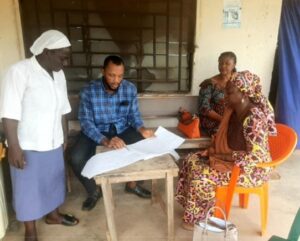
In the first year of implementation, ARFH actively engaged with stakeholders at various levels, including Federal, state, Local Government Areas (LGA), and community gatekeepers, to get the buy-in and provide an enabling environment to foster states ownership and sustainability.
To ensure synergy between the demand and supply aspects which would consequently result in increased awareness, accessibility, and utilization of DMPA-SC and self-injection, a comprehensive training program was conducted for 3860 providers across the four newly targeted states.
Sequel to the training, the program has recorded a notable increase in the number of new acceptors opting for DMPA-SC, from 7644 prior to the training to 31958. This achievement can be attributed to the project’s culturally sensitive approach and CBD model in delivering family planning services, both within healthcare facilities and directly within the communities themselves.

